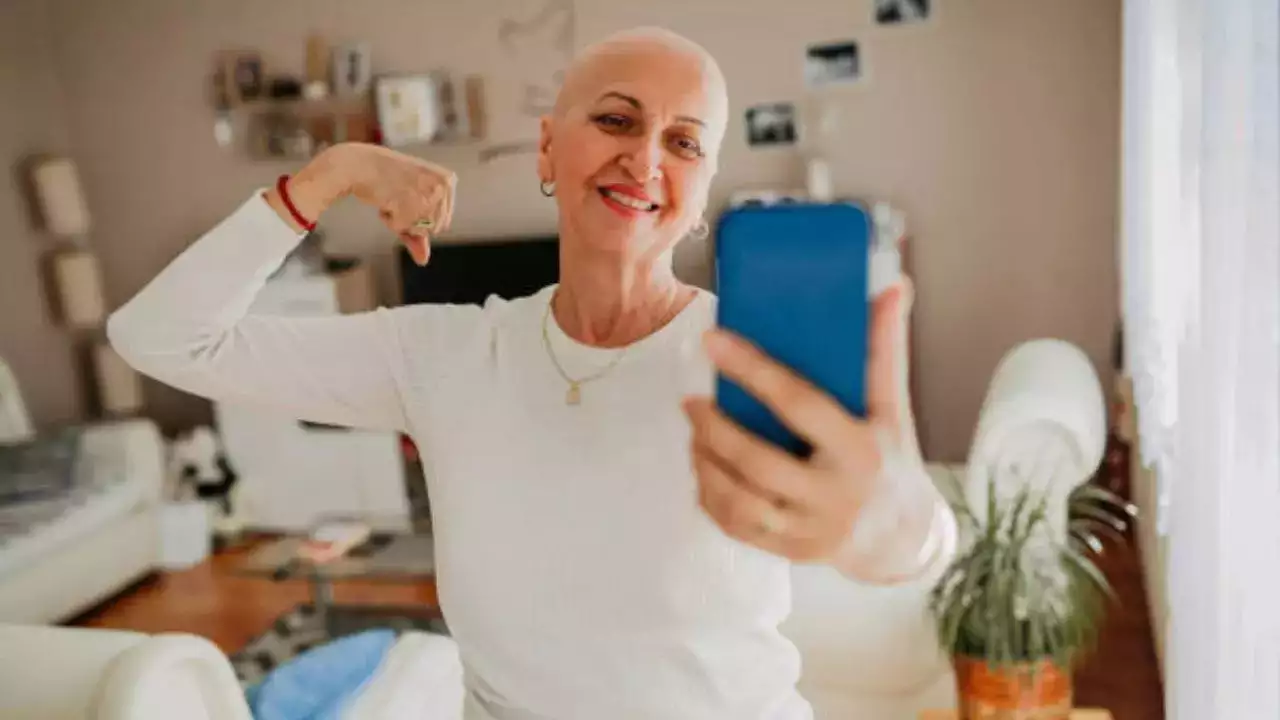
From Fatigue To Organ Failures: Challenges Every Cancer Survivor Faces Post-Treatment (Image Credits: iStock)
Defeating cancer is an achievement, but the battle often doesn’t end with the last treatment session. For many survivors, life post-cancer presents a unique set of challenges that include physical, emotional, social, and financial domains. Fatigue, chronic pain, and hormonal imbalances are just a few of the side effects that can impact daily life. Emotionally, anxiety about recurrence and depression can take over moments of relief, while cognitive issues, often termed "chemo brain," add another layer of complexity. To start living their lives like before, they need support from their loved ones. We got in touch with Dr Swapnil Kapote, Consultant Surgical Oncologist at Jupiter Hospital, Thane, who explains the challenges cancer survivors face that may help you understand their situation better.
1. Physical Side Effects
Cancer treatments, including surgery, chemotherapy, and radiation, can leave physical effects that may vary from person to person.
- Fatigue: “One of the most common complaints I hear from survivors is fatigue,” says Dr Kapote. “It’s not just about feeling tired; it’s a pervasive exhaustion that can last months or even years after treatment.” He recommends a combination of gentle exercise, proper nutrition, and adequate rest to help combat this issue.
- Pain: Chronic pain, often stemming from surgery, nerve damage, or radiation, can be debilitating. Dr Kapote stresses the importance of pain management programs, which may include medications, physical therapy, or alternative therapies like acupuncture.
- Lymphedema: Swelling, particularly in the arms or legs, may occur following lymph node removal. “Patients should work closely with their care team to manage this condition through compression garments, exercises, or specialized therapy,” he advises.
- Hormonal Changes: Treatments affecting the endocrine system can cause weight fluctuations, hot flashes, or sexual dysfunction. “These changes can impact quality of life significantly, and addressing them often requires a multidisciplinary approach,” Dr Kapote adds.
- Organ Function: Heart, lung, kidney, or liver function can be affected by cancer therapies. Survivors require ongoing monitoring to identify and manage any complications early.
2. Psychological and Emotional Challenges
The emotional impact of surviving cancer is profound.
- Anxiety and "Scanxiety": Survivors often experience anxiety during follow-ups or scans, fearing a recurrence. “Psychological counselling and mindfulness practices can help mitigate these fears,” says Dr Kapote.
- Depression: Adapting to life post-treatment can lead to depression, particularly if survivors grapple with physical changes or the emotional toll of their journey. Seeking professional mental health support is crucial.
- Cognitive Issues: Many survivors report “chemo brain,” a term describing difficulties with memory, focus, and mental clarity. Dr Kapote shares cognitive rehabilitation programs as effective tools for recovery.
3. Social and Relationship Dynamics
Cancer often redefines personal and professional relationships.
- Survivors may feel isolated as loved ones struggle to understand their post-treatment challenges. “Open communication with family and friends is key,” says Dr Kapote.
- Changes in family roles can create stress, especially for those who were primary caregivers or breadwinners.
- Returning to work can be tough due to fatigue or cognitive difficulties. “Employers must provide support and accommodations to ease this transition,” he said.
4. Financial Stress
Cancer’s financial toll persists long after treatment.
- Ongoing medical expenses for follow-ups, medications, and side effect management can strain budgets.
- Lost income during treatment exacerbates financial stress. “Survivors should explore financial assistance programs and consult with insurance advisors for support,” Dr Kapote suggests.
5. Long-Term Health Monitoring
Regular follow-ups are critical to detect recurrences or secondary cancers early.
- Survivors are also at increased risk for long-term health conditions like cardiovascular disease or osteoporosis due to treatment side effects.
- Dr Kapote recommends creating a survivorship care plan that includes routine screenings, lifestyle changes, and access to supportive resources.
6. Adapting to a New Normal
The post-treatment phase is about redefining life’s priorities and embracing new routines.
- “Rehabilitation programs, counselling, and support groups can help survivors navigate this transition,” Dr Kapote explains.
- Holistic practices like yoga, meditation, and mindfulness can also promote mental and physical well-being.
Expert Advice for Survivors
Dr Kapote encourages survivors to prioritize their health and seek support whenever needed. “Survivorship is a journey that demands patience and perseverance. Surround yourself with a strong support system, stay proactive about your health, and don’t hesitate to seek help from professionals or support groups,” he said.
Get Latest News Live on Times Now along with Breaking News and Top Headlines from Health and around the world.
